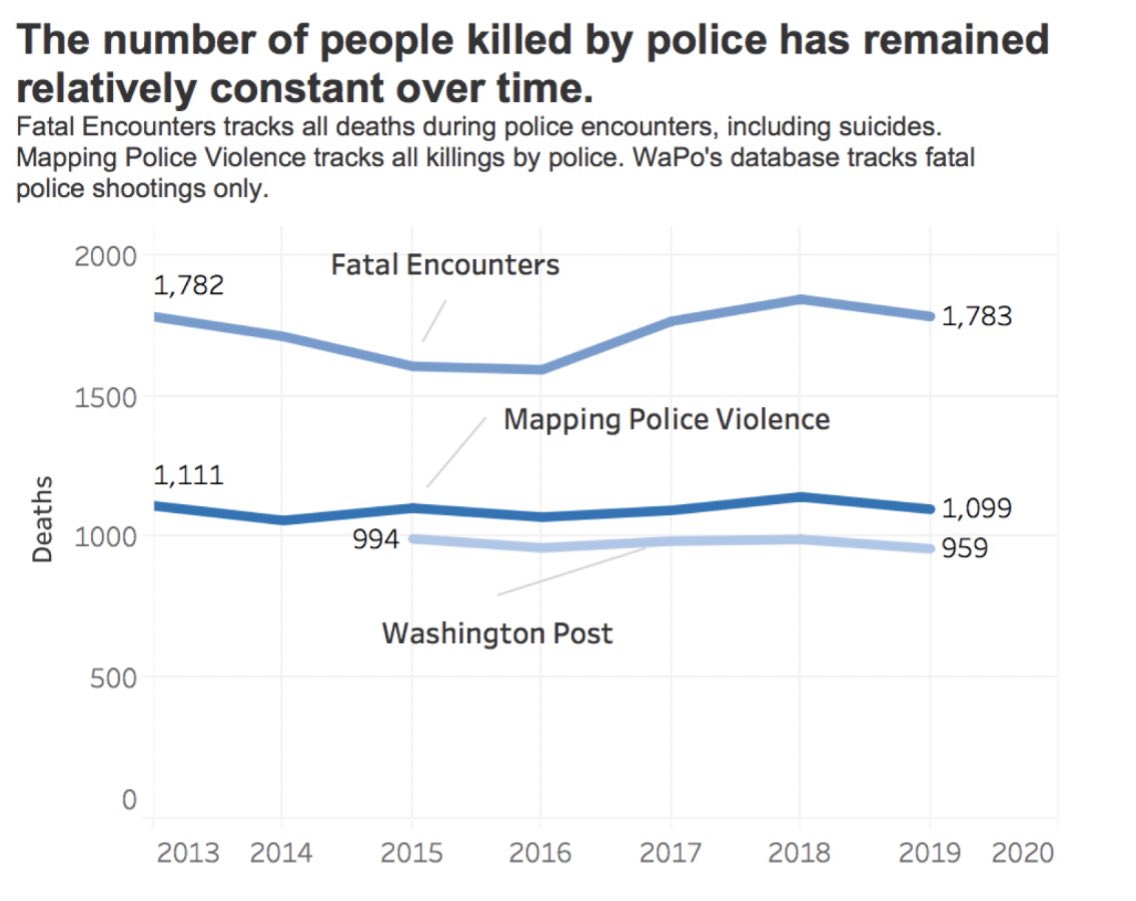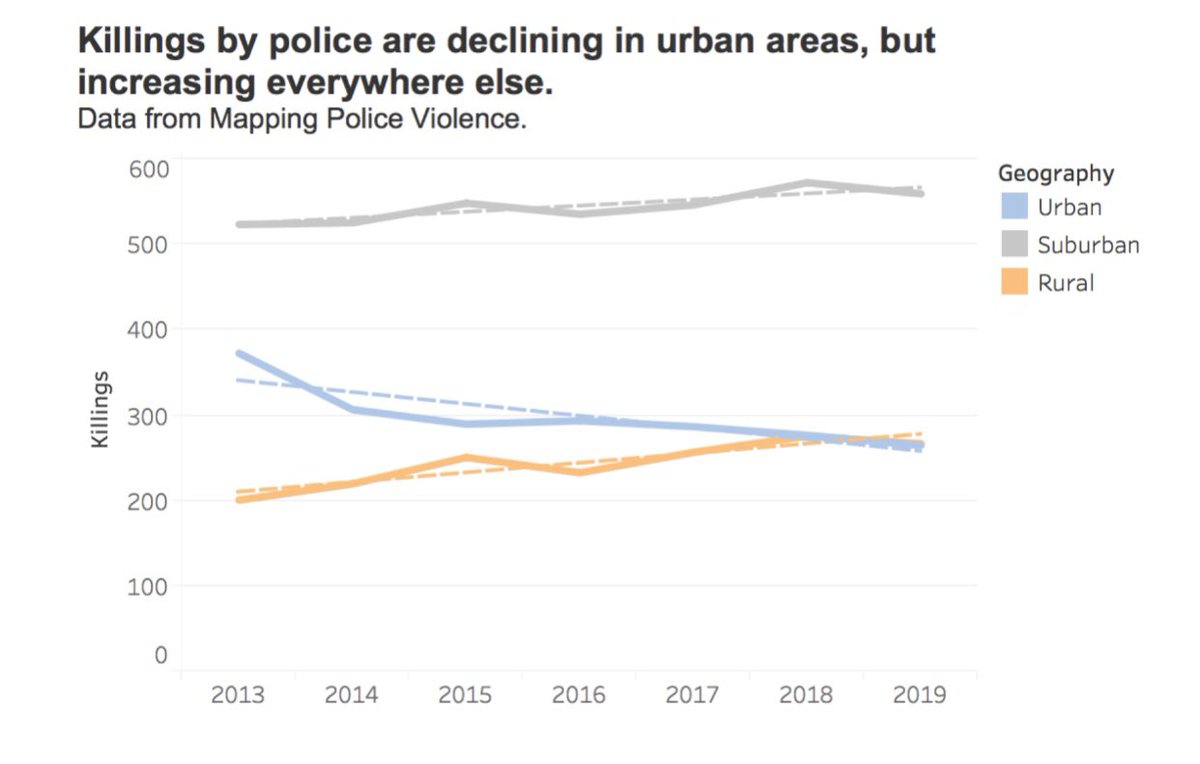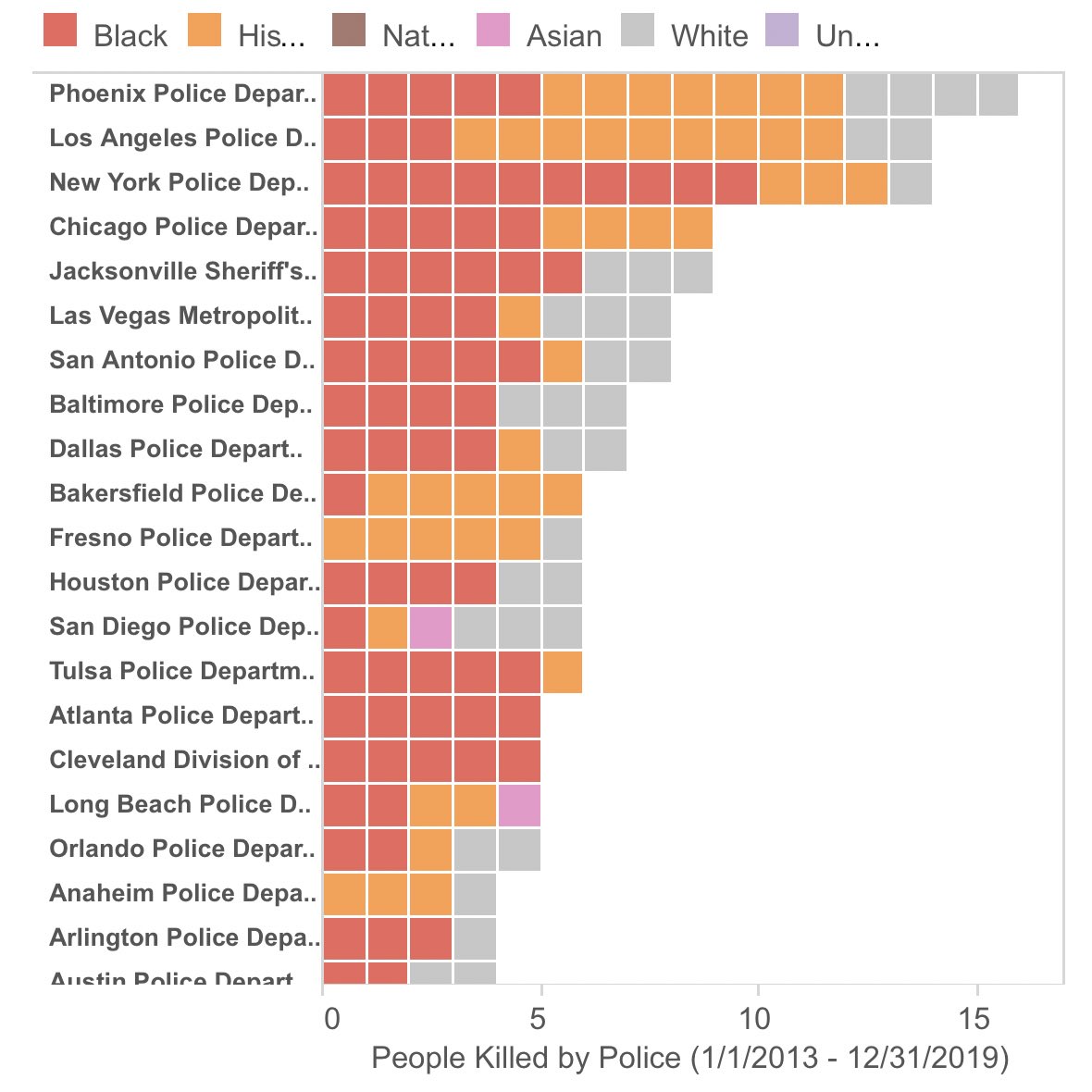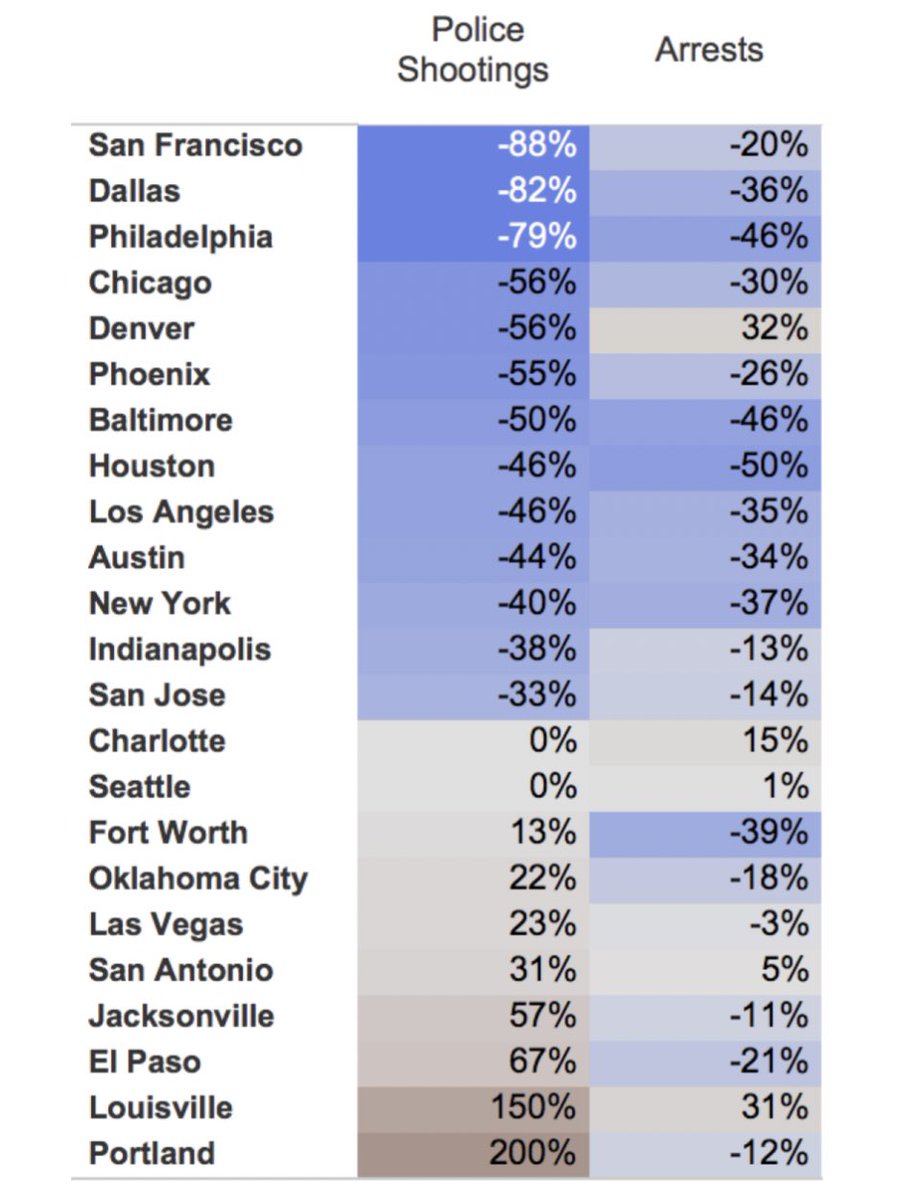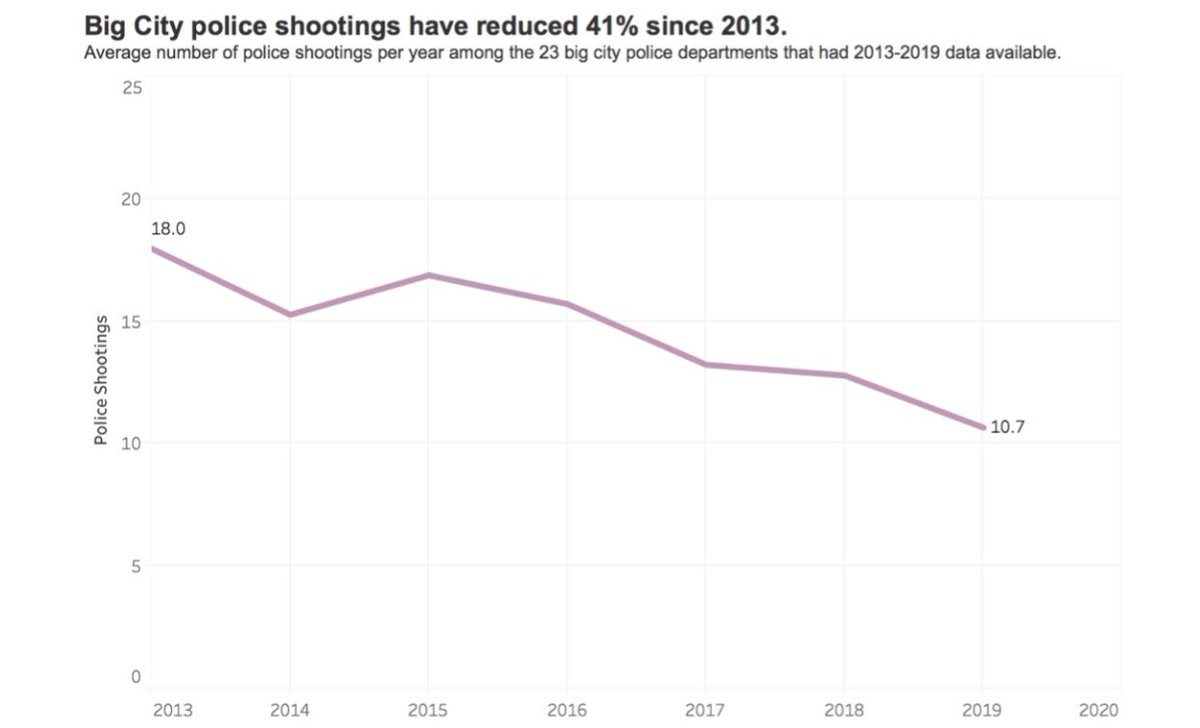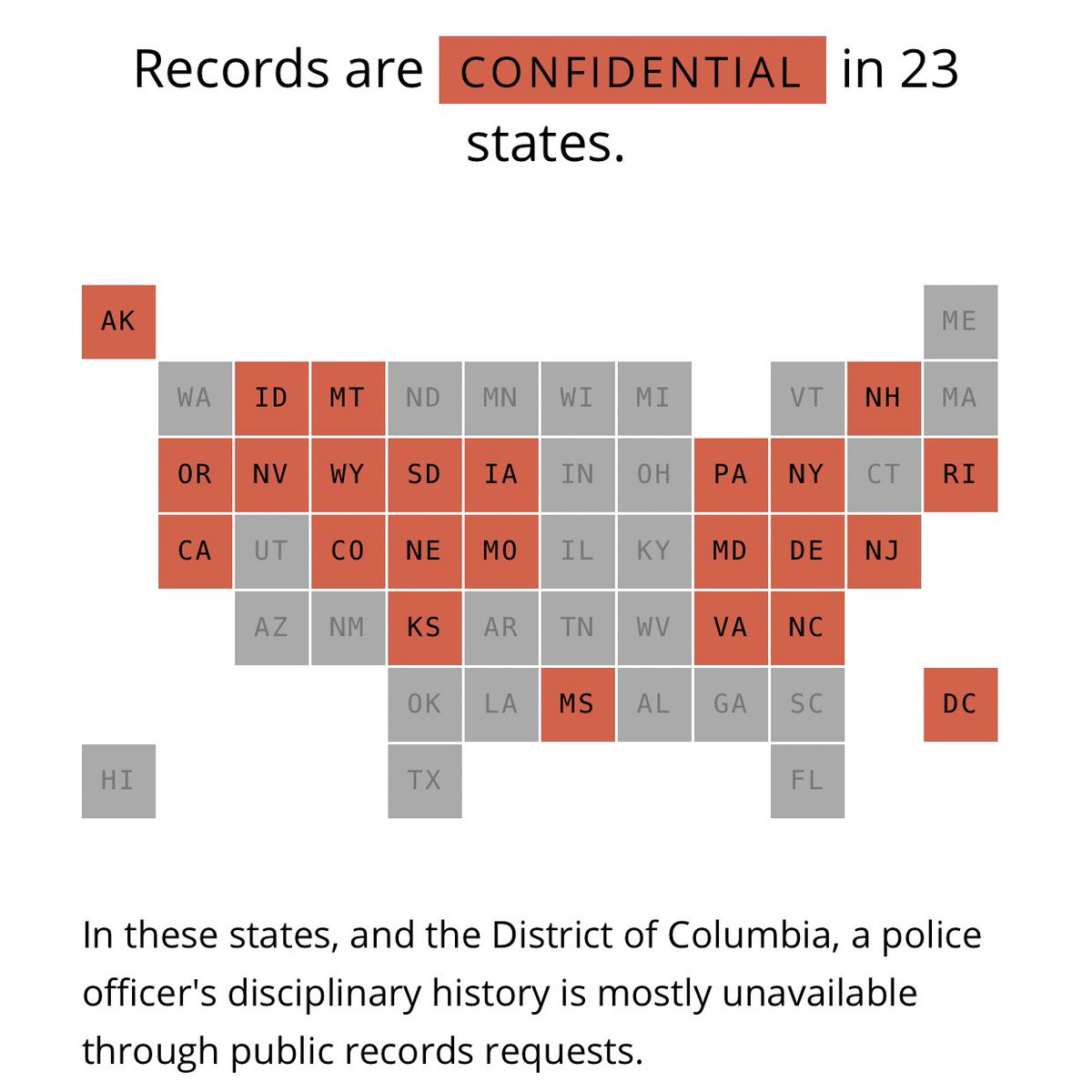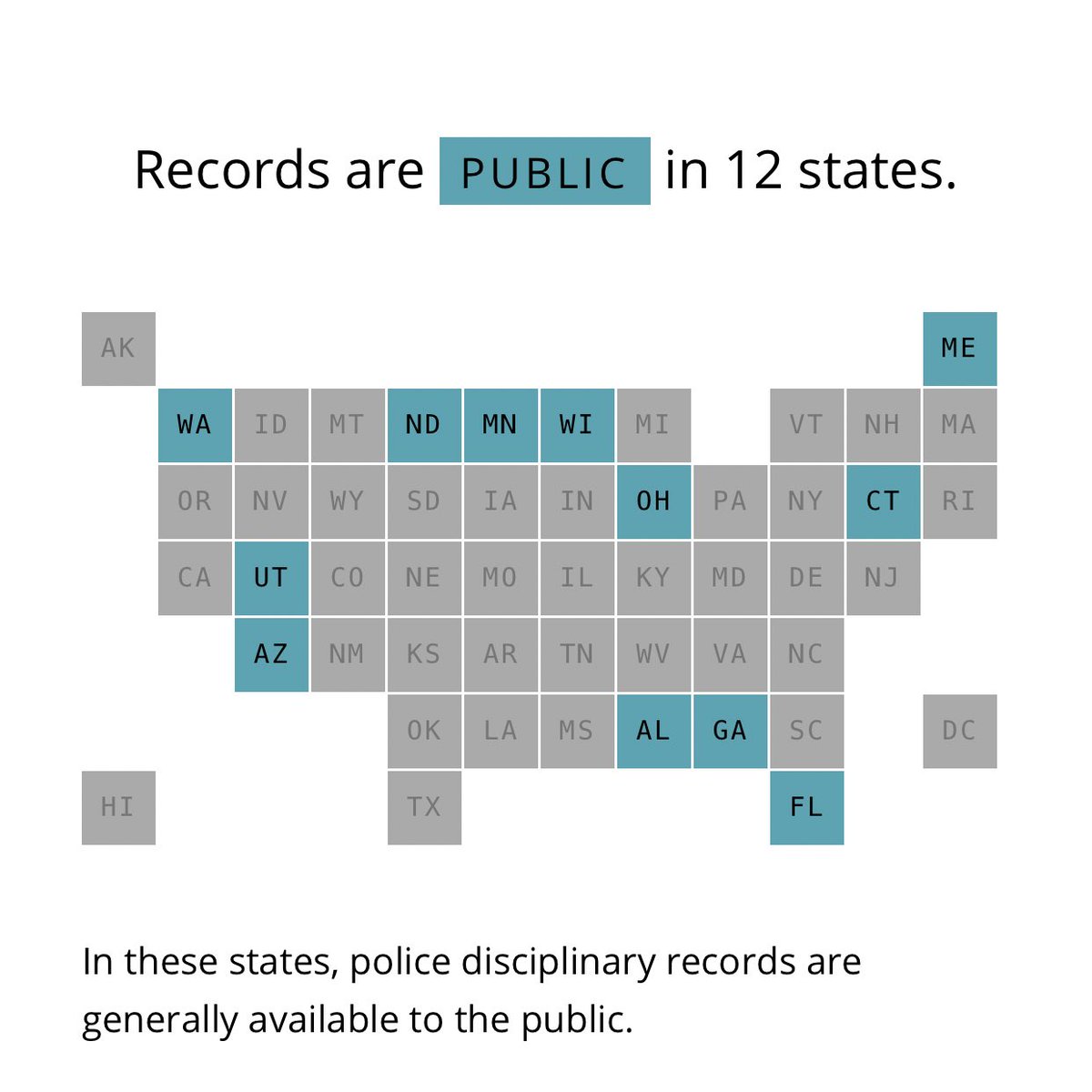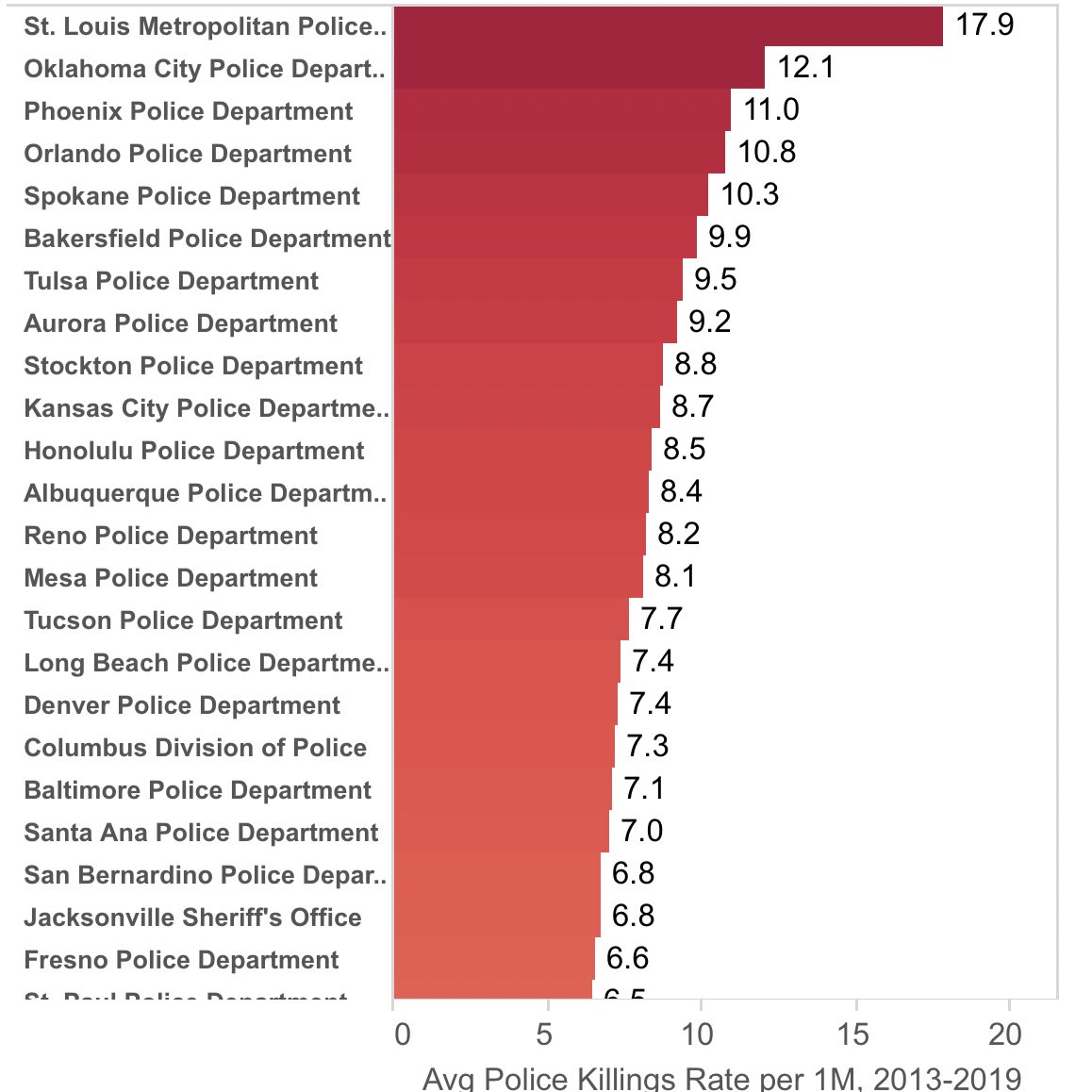
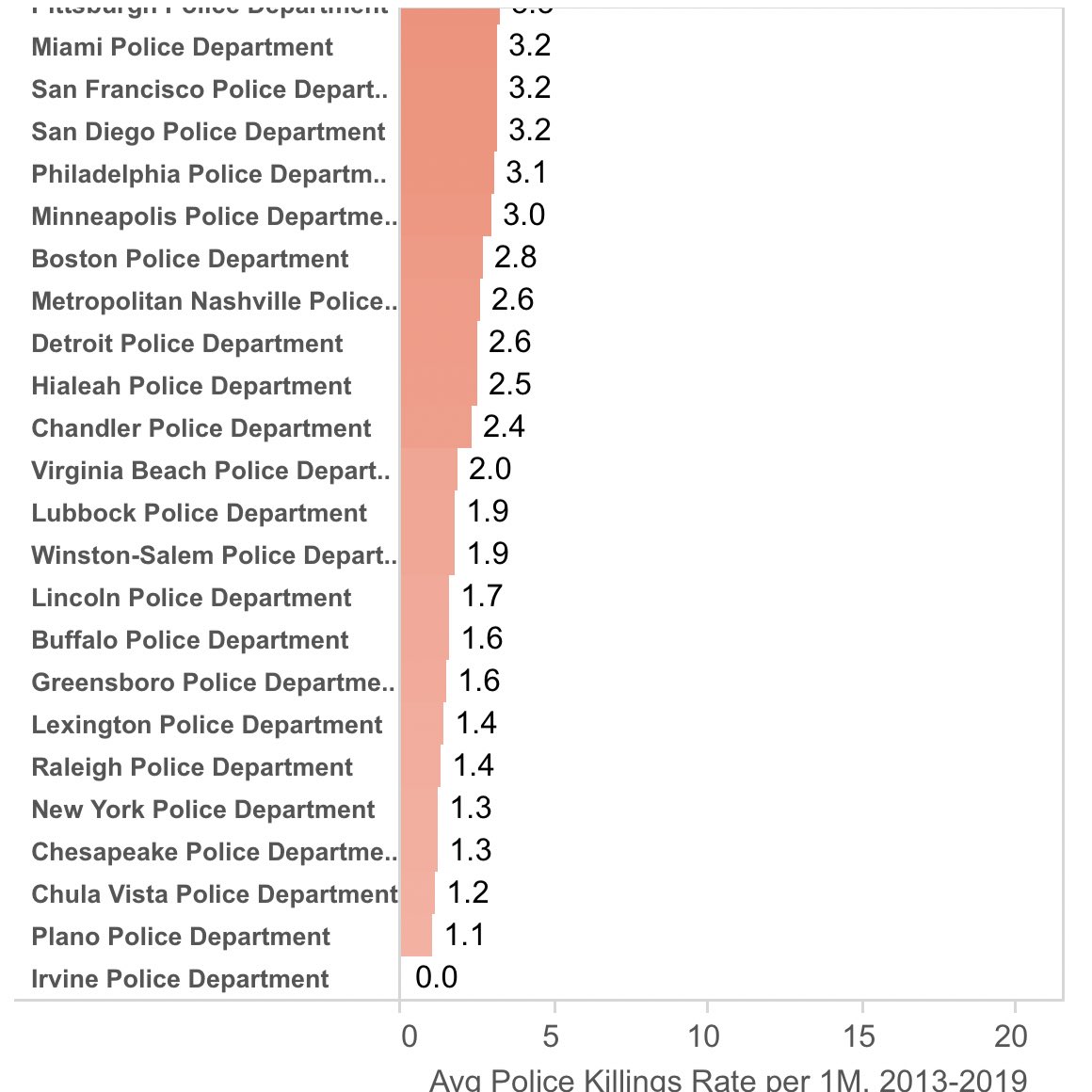
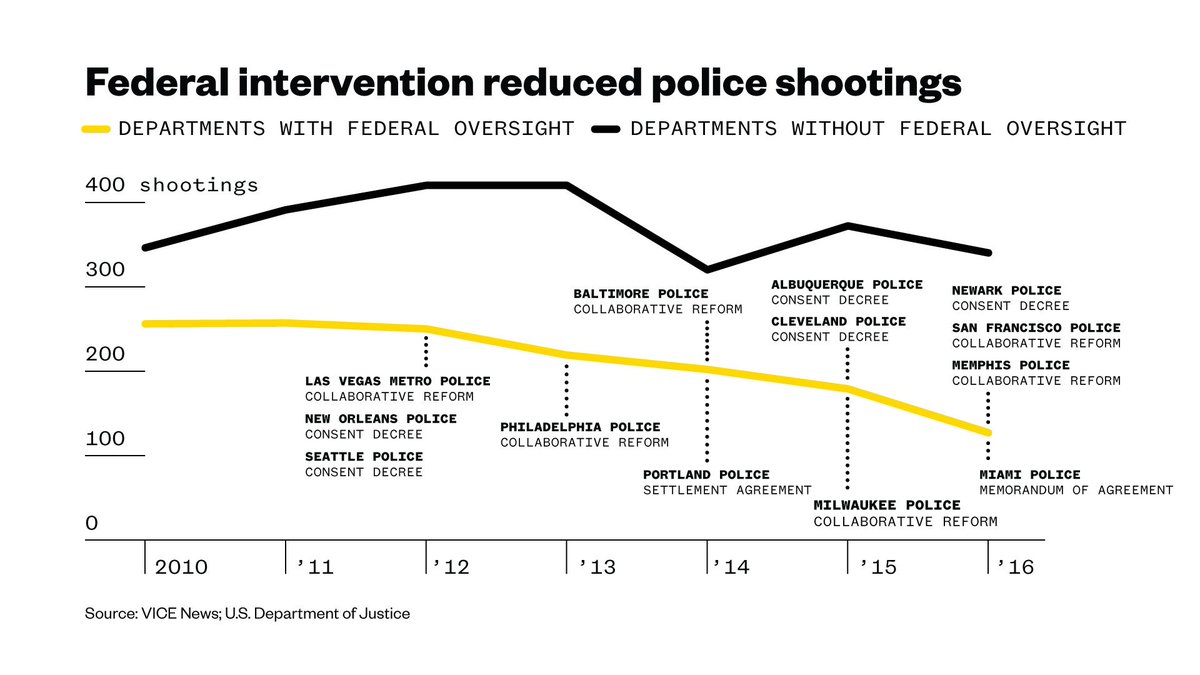
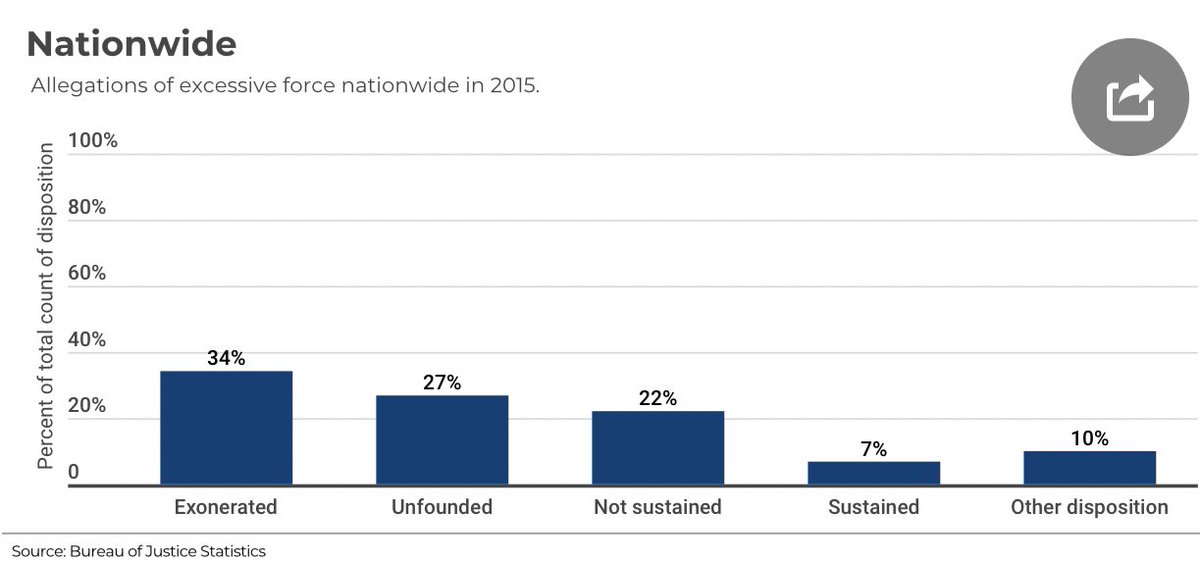
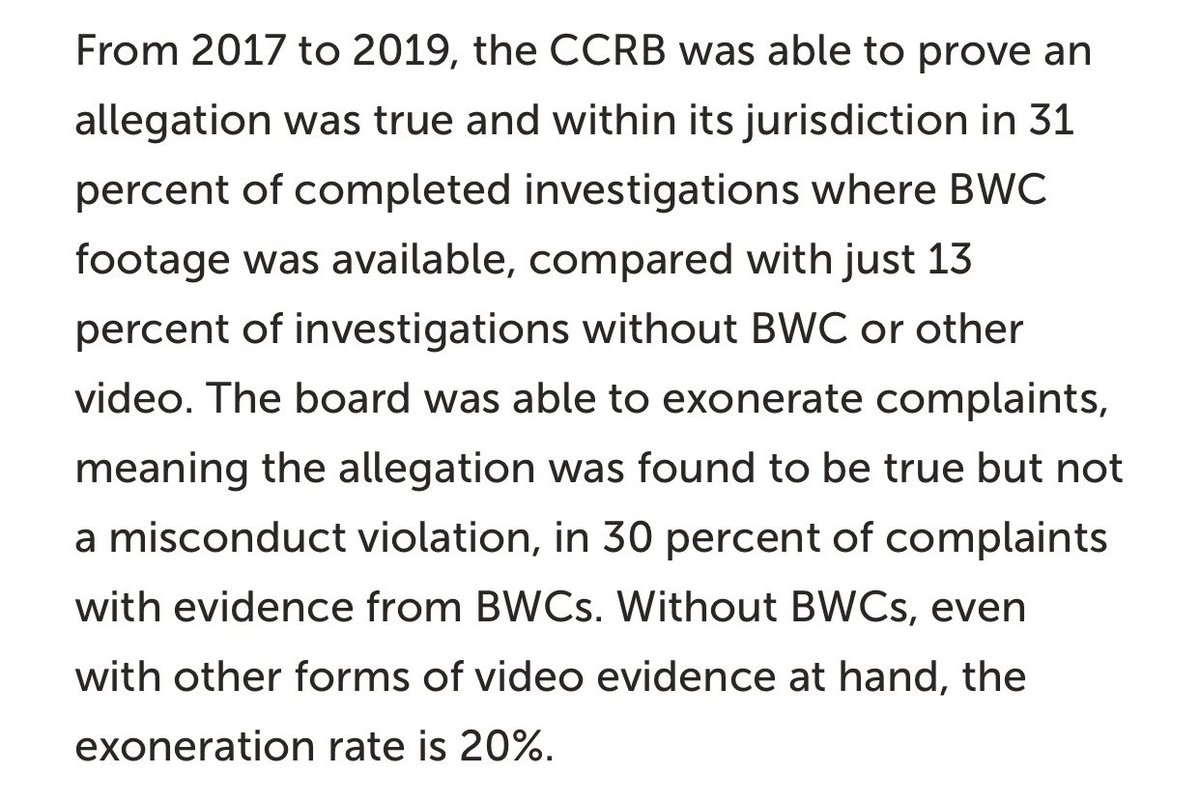
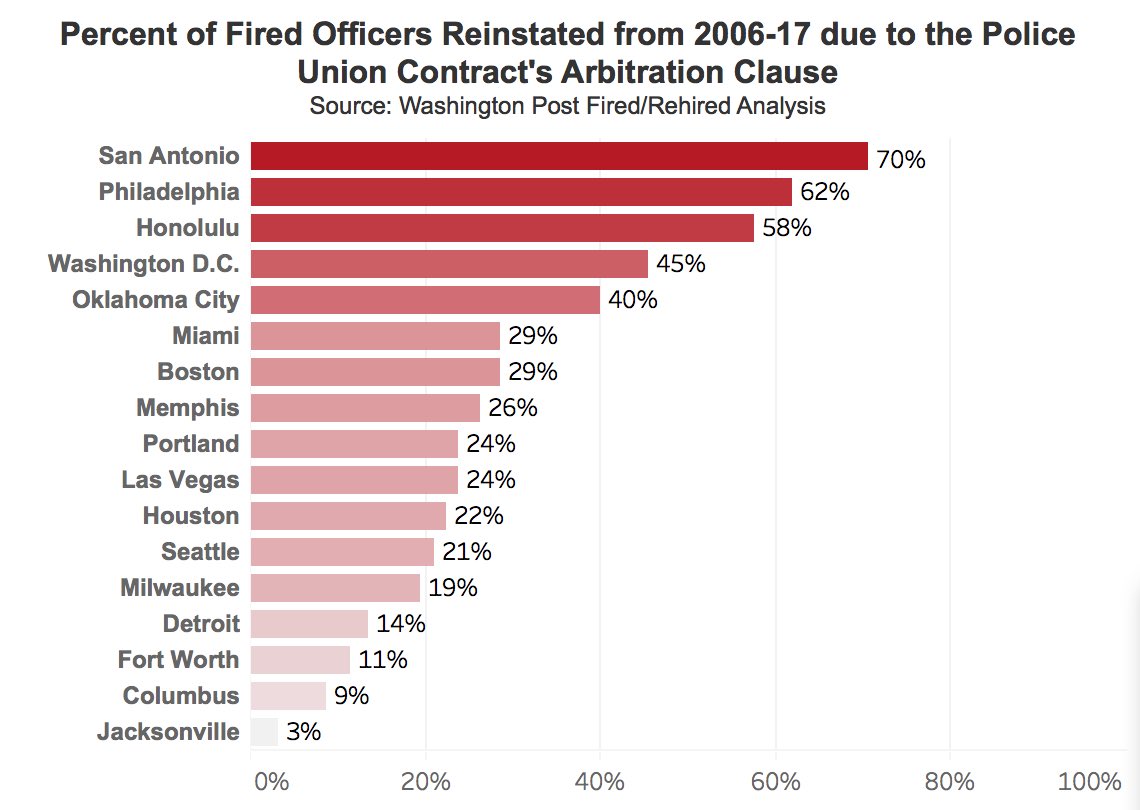
1) more likely to be reported for misconduct
2) less likely to uphold misconduct complaints
3) more likely to kill unarmed people papers.ssrn.com/sol3/papers.cf…
1) which depts have the worst police violence rates & which are reducing it
2) a set of interventions/factors associated with reducing this violence and increasing accountability
By continuing to study & scale up what works we can end police violence nationwide.

